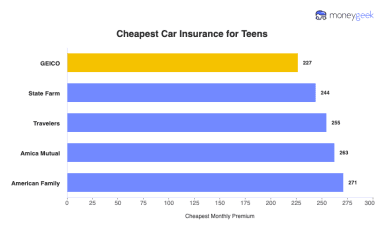Car insurance rates have skyrocketed. According to our analysis, the average cost of car insurance has increased 59% since 2020. The biggest opportunity to lower your car insurance rate for most people is switching insurers. But switching is just the start of tactics you can take to lower your auto insurance cost. Stack discounts, bundle your policies to save on both policies, and optimize your coverage to unlock $250–$1,500+ in total annual savings. Here's exactly how to do it.
Different tactics lower your car insurance by different amounts and require different levels of effort. The most effective way to lower your car insurance rates is to stack these reduction tactics. Here's the strategies that every driver can take to lower their car insurance rate:










